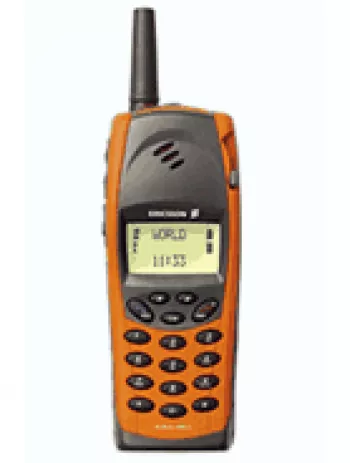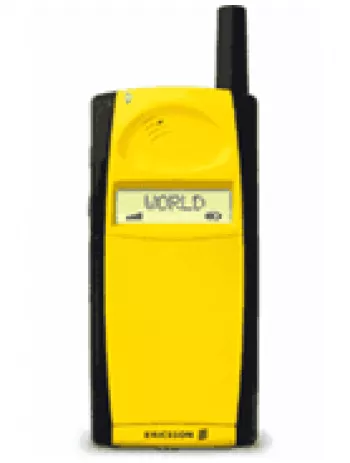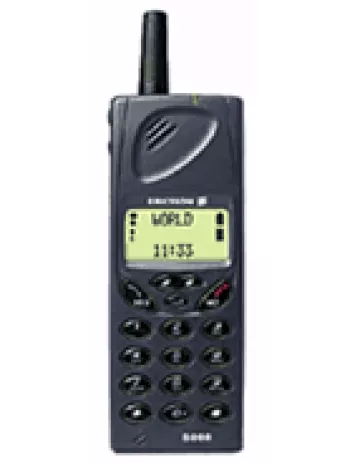
Overview of Ericsson T36
The Ericsson T36 was a mobile phone that was announced by Ericsson in the year 2000. Despite its announcement, the phone was unfortunately cancelled, and thus never made its way to the hands of consumers. However, it remains a noteworthy piece of technology from the early 2000s, representing some of the trends and technological advancements of that time.
Network and Connectivity
MarcRobust in its intended network capabilities, the Ericsson T36 was designed to support GSM technology, specifically in 2G bands including GSM 900, 1800, and 1900. This broad network support would have made it accessible to users in various regions, particularly in Europe and North America where these frequencies were commonly used. The absence of GPRS and EDGE meant that the phone was primarily focused on voice communication rather than data services, which aligns with the technological era of its time.
Design and Build
The design of the Ericsson T36 was compact and user-friendly, with dimensions of 105 x 49 x 24 mm, making it pocket-friendly and easy to handle. Weighing just 88 grams, it was a light device, characteristic of many feature phones of that era. It used a Mini-SIM card, which was standard at the time. The emphasis was on providing a reliable device for basic communication needs.
Display Features
Featuring a grayscale graphic display, the Ericsson T36 was simplistic yet functional. The display could accommodate up to 4 lines of text, which was typical for phones during this period. While it lacked the vibrant color displays of modern smartphones, it was sufficient for basic interactions and navigation through the phone's menu.
Memory and Storage
In terms of memory, the Ericsson T36 provided space for up to 1000 phonebook entries, which was quite generous for its time. However, it did not support expandable memory through card slots, aligning with its focus on core phone functionalities rather than multimedia use.
Sound and Alerts
The phone was equipped with monophonic ringtones and supported vibration as an alert type. Notably, it lacked a loudspeaker and a 3.5mm jack, which was typical for many basic phones of the time that prioritized size and functionality over multimedia capabilities.
Communication Features
On the communications front, the Ericsson T36 stood out with its inclusion of Bluetooth technology, a relatively new feature at the time that allowed for wireless connectivity with other devices. It also featured an infrared port for data transfer, a common feature in early mobile devices before Bluetooth became widespread. However, it did not support WLAN, radio, or USB connections.
Software and Usability
The device ran on a feature phone operating system, which included essential tools like SMS for messaging, a WAP 1.2 browser for basic internet browsing, and standard utilities like a clock and alarm. It offered language support in 37 options, appealing to a global audience despite its eventual cancellation. While it didn’t support Java, it came with a few preinstalled games to entertain users.
Battery Life
The Ericsson T36 featured a removable Li-Po battery, which was a standard feature at the time, allowing users to replace batteries as needed. It boasted a standby time of up to 200 hours and a talk time of 7 hours, indicating a robust battery performance that would have satisfied users who relied heavily on voice communications.
Conclusion
Even though the Ericsson T36 never reached the commercial market, it remains an interesting chapter in the history of mobile technology. Its design and feature set reflected the transitional phase in mobile communications, where phones were evolving from mere voice communication devices to incorporating more diverse technological features. The inclusion of Bluetooth technology and extended phonebook memory were noteworthy advancements. While it was eventually cancelled, the Ericsson T36 provides insights into the mobile phone trends and technological aspirations at the dawn of the 21st century.
Main Features of Ericsson T36
- Compact Dimensions: 105 x 49 x 24 mm (4.13 x 1.93 x 0.94 in)
- Lightweight: Weighs only 88 g (3.10 oz)
- Supports GSM Technology on 900 / 1800 / 1900 bands
- Bluetooth Connectivity
- Infrared Port for additional connectivity
- Phonebook Capacity: Stores up to 1000 contacts
- Removable Li-Po Battery with 7 hours talk time and 200 hours standby
- Multiple Language Support: 37 languages available
- Includes basic features like SMS messaging, WAP 1.2 browser, clock, and alarm
Disadvantages of Ericsson T36
- The device was cancelled and never released, limiting accessibility.
- Lack of GPRS and EDGE means no data transfer capabilities over mobile networks.
- No external memory card slot, limiting expandable storage options.
- Grayscale graphic display with limited resolution (only 4 lines), affecting display clarity.
- No loudspeaker available, affecting audio output quality.
- Absence of 3.5mm audio jack limits headphone connectivity.
- No WLAN capability restricts internet connectivity options.
- No GPS positioning feature available.
- No FM radio included for media options.
- Limited messaging functionality to SMS only.
- Browser supports only WAP 1.2, limiting internet browsing experience.
- No support for Java applications.



View Also
More Phones
All Rights Reserved +14266 Phones © Mobilawy 2025
























